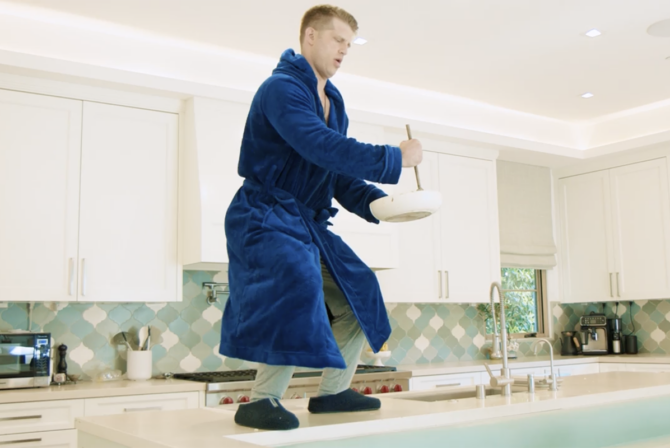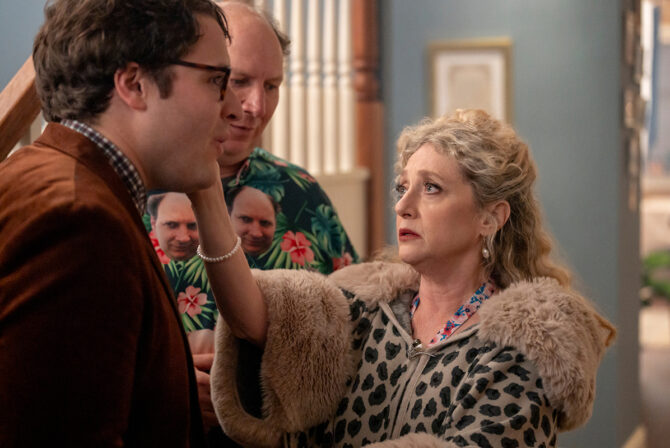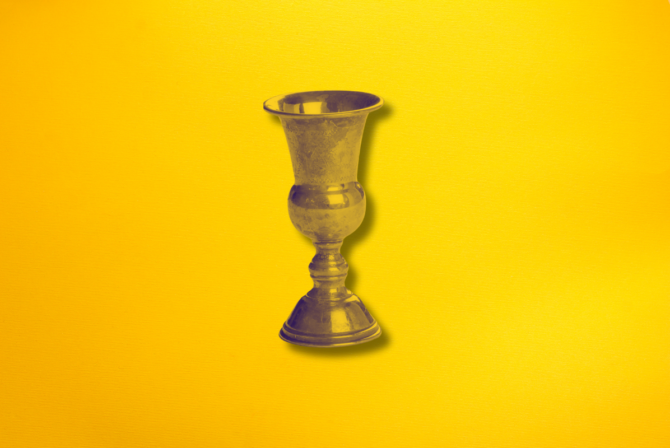Stefan Teodosic is the executive director of Beber Camp, Perlman Camp, and the Perlman Retreat Center. Stefan started his career in finance, but decided to change paths on September 11, 2001 after witnessing the World Trade Center collapse. Stefan agreed to sit down with us and tell us why his camps are different from all other camps.
1. Before becoming a camp director, you worked for American Express and were blocks away from the World Trade Center on 9/11. Can you talk about how that day ultimately helped you decide to change paths?
Since I was 16, I knew that I wanted to be a camp director, as it was the single most impactful experience I had growing up. Through college, business school, and my career, I couldn’t shake the idea of being in Jewish camping full time. It bubbled to the surface at times–thoughts about going back to school to get another degree, taking vacation time to work with teens at my old camp, and even thinking about quitting–but it was never more than that to be honest.
The morning of September 11th, I was presenting to upper management with the goal of a fast track promotion. I had been thinking about the potential career track as well as camp the entire way downtown as I got closer to the World Trade Center. I watched the first plane fly right over my head into the North Tower. Once I was safe, I knew that if things like this could happen, I needed to be doing what I was most passionate about in life. I also realized that I needed to not waste any time moving in that direction.
Within a week of that fateful day, I began planning my major life change. I started reconnecting with my old camp mentors with the goal of getting back in the game, and once the process started, it moved fairly quickly. Within a few months I accepted an offer with a small not-for-profit Jewish summer camp, and moved to Chicago to follow my dream.
2. Growing up, what role did camp play in your life?
I went to camp when I was 9 years old and it was the summer right after my parents got divorced. Camp was a revelation to me and gave me everything that I needed from community and self-esteem to Jewish identity and skills. I loved camp, I went back for 14 consecutive summers and without question, that experience has given me the skills to succeed in all stages of my life to this point.
3. Why was it important for you to work with not just any camp, but a Jewish camp?
Teodosic is not a Jewish last name–my mother is Jewish and my father is not. I grew up with very little Jewish identity and camp really ignited my Jewish soul and has continued to nourish it for over three decades. Camp gave me my Jewish identity, it took me to Israel for my first time as a teen, and it fostered my first real Jewish relationships. As a result of my positive Jewish camp experience, I joined NFTY and BBYO and at the Univerity of Michigan, I went to high holiday services at Hillel.
For me personally, there is only one type of summer camp and that is Jewish camp. Once the idea of leaving the business world really became a reality, there was never any doubt in my mind that I would be the director of a Jewish residential camp. I wanted to continue to work in an environment that had such a positive impact and be able to give a transformative, positive Jewish camp experience to as many kids, staff, and families as possible. Camp still continues to inform my Jewish identity–as a leader of my camp communities, as a lay leader on the board of Moishe House, as a husband, and as a father.
4. What is special or unique about your camps? How are they different from others out there?
I am so proud of the amazing work that we are doing at both Beber Camp and Perlman Camp. First of all, we approach things at both camps from a mission driven, intentional, and explicit place. We concentrate on providing excellent child-care, world class bunk and choice-based programming, and inclusive Judaics. We also don’t cross our fingers and hope that our communities get what we are trying to do, and we are very explicit in linking everything together for everyone very clearly.
We are also a bit different in that we approach things from a different perspective, driven by my professional career pre-camping. My mentor once told me that not-for-profit is a tax status and if I didn’t run my camp like a business behind the scenes, I would be telling my mission to the trees until I closed the doors. That really stuck with me, and behind the scenes we run like a high end business complete with a customer service focus, investments in technology, and a belief in routine operational excellence.
5. Particularly after the 2008 financial recession, many Jewish families understandably see Jewish overnight camp as a luxury. What options are available for families who find that Jewish camp is just not in the cards for them?
A Jewish camp experience is one of the most important things a child can have while growing up, and everyone should have access to a high quality program. Philosophically, neither camp turns away a family due to financial need, and we work very hard to make sure that camp is a reality for all campers. As such we have need-based financial aid programs, we work with local Federations and congregations, and we have access to the Foundation for Jewish Camp’s One Happy Camper first-time camper incentive programs. We also work with parents every summer to set up payment plans throughout the year to spread out the financial impact of a summer experience. Both camps have active annual campaigns for scholarship and as not-for-profit organizations, all donations to Beber and Perlman are tax deductible.
What is the hardest part about being a camp director? The best?
Being a camp director is truly a labor of love and there are many difficult things that we have to balance every day. We have to be masters of several disciplines, act as the mayor of a small city with all of the included services, we are responsible for other people’s children, and we have to be adept at communicating with parents during potentially stressful situations. At the same time, we have to be parents, spouses, friends, and overall leaders of our communities for hundreds of campers and staff.
The best thing by far is being able to give the gift of Jewish camp to every single camper, every summer… and the fact that I get to be at camp for three months a year.
Like this post? Get the best of Kveller delivered straight to your inbox.












